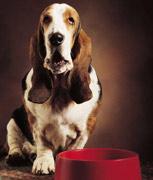Home Care Options for Pets

Home Care Options for Pets
Use the following remedies for no more than 2 days. If there is no improvement after 2 days, please see your veterinarian.
Wounds
Warm compresses can do a world of good to keep a wound clean and decrease swelling. Saturate a clean washcloth with warm (not hot) water. Wring out the excess water and then apply the compress to the wound for 10 minutes. Repeat this process 3 times a day.
If the wound has smelly or green discharge, this treatment is not for your pet. Please see your veterinarian, as your pet may need to be treated with antibiotics.
Crusty or Runny Eyes
Eyelid scrubs can be used to treat crusty or goopy eyes. Use a tearless baby shampoo combined with 1 to 20 parts warm tap water. Scrub the eyelids twice daily, removing all crust or discharge on the lids. Be sure to rinse the soap off with clean, warm tap water.
If only 1 eye is affected or if the pet has redness in the eye, he/she may have a corneal ulcer and needs to be seen immediately by your veterinarian.
Foot Abrasions
Foot pad cuts are a common problem in dogs. Dogs tend to lick cuts avidly, preventing them from healing. If the cut is not bleeding, wash it with soap and water and then soak the foot in a bucket of warm water for 10 minutes, twice daily. Dry the foot well and then cover or wrap the foot to keep your dog from licking it. One way to accomplish this is by using a sock pulled over the foot and held in place by some duct tape, applied over the sock, and loosely placed above the wrist or hock. The hock is the pointy bone on the back leg above the ankle. Be sure to keep this foot dry.
Diarrhea
Acute diarrhea can be treated by withholding food for 24 hours. After this time, offer your pet a bland diet of non-fat cottage cheese and boiled, chopped chicken with white rice. In addition, 1 teaspoon to 1 tablespoon of plain yogurt will provide helpful bacteria to the intestines. If the diarrhea persists for more than 2 days, be sure to see your veterinarian and be sure to take a fecal sample with you. The sample will allow tests for intestinal parasites to be performed.
Vomiting
Acute vomiting can be managed by taking away your pet’s food and water. If no vomiting occurs for 12 hours then your pet can be given small amounts of water (1/4 cup to 1 cup of water, depending on the size of your pet) or several ice cubes in his/her water bowl. The water from the melting ice prevents your pet from drinking a large amount of water, which may cause more vomiting. If no vomiting occurs after 24 hours, then a small amount of a bland diet (see above) can be fed.
Helpful Tips
Keep a fully stocked emergency kit for your pet readily available. Be sure to check our next post in which we will give you a list of items to collect for your pet's first aid kit. Additionally, keep handy the animal poison control hotline number: (888) 426-4435.
For veterinary emergencies, The Animal Medical Center (AMC) provides care 24 hours a day, 7 days a week, year-round. The AMC is located at 510 East 62nd Street in New York City and may be reached at (212) 838-8100.


































